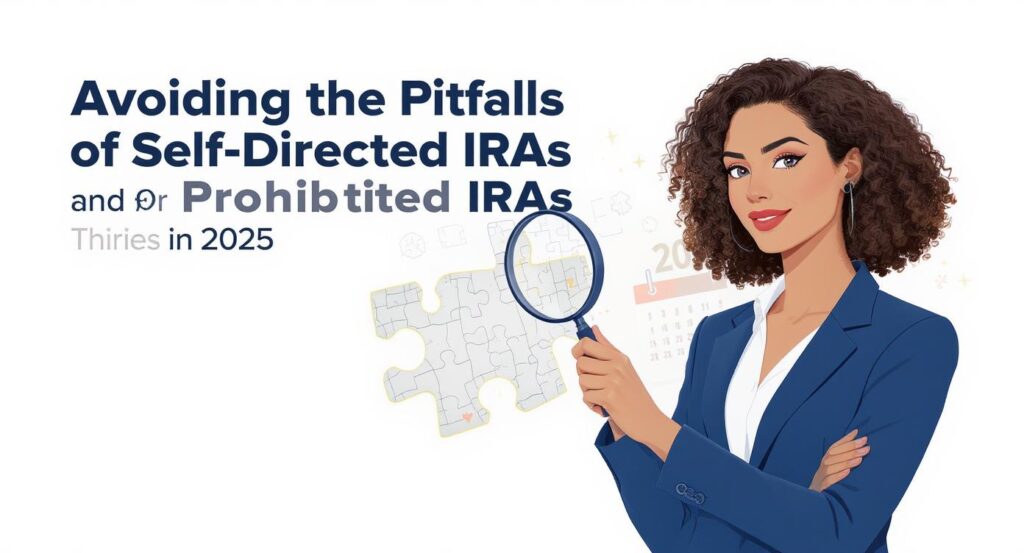
Page 1: What Are Self-Directed IRAs?
A Self-Directed IRA (SDIRA) is a type of individual retirement account that gives you more control. Unlike regular IRAs that let you invest in stocks, bonds, or mutual funds, a self-directed IRA lets you invest in real estate, private companies, gold, and even cryptocurrency. That sounds great, right?
But there’s a catch.
With more freedom comes more responsibility. You have to follow the rules set by the IRS very carefully. If you break those rules, you could face prohibited transactions and tax penalties.
In 2025, more people are using self-directed IRAs to grow their money in creative ways. But it’s important to know the pitfalls of self-directed IRAs and prohibited transactions before diving in.
Page 2: Understanding Prohibited Transactions
A prohibited transaction happens when you do something with your self-directed IRA that the IRS says is not allowed. The IRS has strict rules to keep your retirement money safe and separate from your personal life.
Here are some examples of prohibited transactions:
- Buying a house with your SDIRA and living in it
- Selling property you already own to your IRA
- Lending money to yourself or a family member from the IRA
- Hiring your child to manage a business owned by your IRA
These are all considered “self-dealing,” and they’re a big no-no.
The pitfalls of self-directed IRAs and prohibited transactions can be tricky to spot. You might think you’re making a smart move, but if it breaks IRS rules, your entire IRA could lose its tax-advantaged status. That means taxes, penalties, and a big financial mess.
Page 3: How to Avoid the Pitfalls in 2025
Now that you know the risks, how can you stay safe?
Here are some smart steps to avoid the pitfalls of self-directed IRAs and prohibited transactions in 2025:
- Work with a Qualified Custodian
A self-directed IRA must be held by an approved custodian. This is not your average broker. Choose one that understands alternative assets and IRS rules. - Keep Everything at Arm’s Length
You and your family can’t personally benefit from IRA-owned assets. If your IRA owns a rental house, you can’t stay in it—not even for one night. - Get Legal and Tax Advice
Self-directed IRAs involve complex rules. A tax advisor or attorney who specializes in retirement law can help you avoid costly mistakes. - Review Every Investment
Just because you can invest in something doesn’t mean you should. Think twice before putting your IRA into risky or unproven deals.
In 2025, the IRS is paying closer attention to self-directed IRAs. With the rising popularity of alternative assets, enforcement of the rules is getting stricter. That makes it more important than ever to understand the pitfalls of self-directed IRAs and prohibited transactions.
Final Thoughts
Self-directed IRAs can be powerful tools for building wealth. But if you don’t know the rules, you could end up with a big headache—and a big tax bill.
By learning the pitfalls of self-directed IRAs and prohibited transactions, working with the right experts, and following the rules carefully, you can make the most of your retirement savings in 2025.


